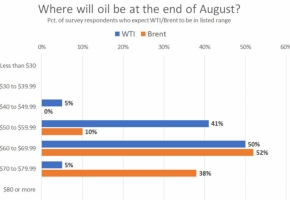Shell Traders Post $1 Billion Profit in Fuel Oil Market

Photo credit: The Gulf Time
Rules force shipping companies to use lower-sulfur fuel. Royal Dutch Shell Plc has made $1 billion from trading fuel oil this year, making it one of the standout winners from rules designed to make the shipping industry greener.
The fuel-oil market has been shaken this year by the so-called IMO 2020 new regulations that ban the use of high-sulfur fuel oil to power ships. The rules are aimed at combating human health conditions such as asthma and environmental damage including acid rain. Prices are collapsing because the global shipping fleet, which burns more than 3% of the world’s oil, will have to consume very low sulfur fuel-oil.
It’s unclear exactly how Shell’s traders made their profit, but premiums for fuel that’s lower in sulfur have surged this year, potentially benefiting those companies that produce more of the product. Shell’s refining system is a relatively sophisticated one, something that could put the company in a better position as the regulations enter into force.
The spread between high and low sulfur fuel-oil blew up to almost $30 a barrel in late October, compared with an average of about $2 a barrel in 2018, according to the International Energy Agency.







